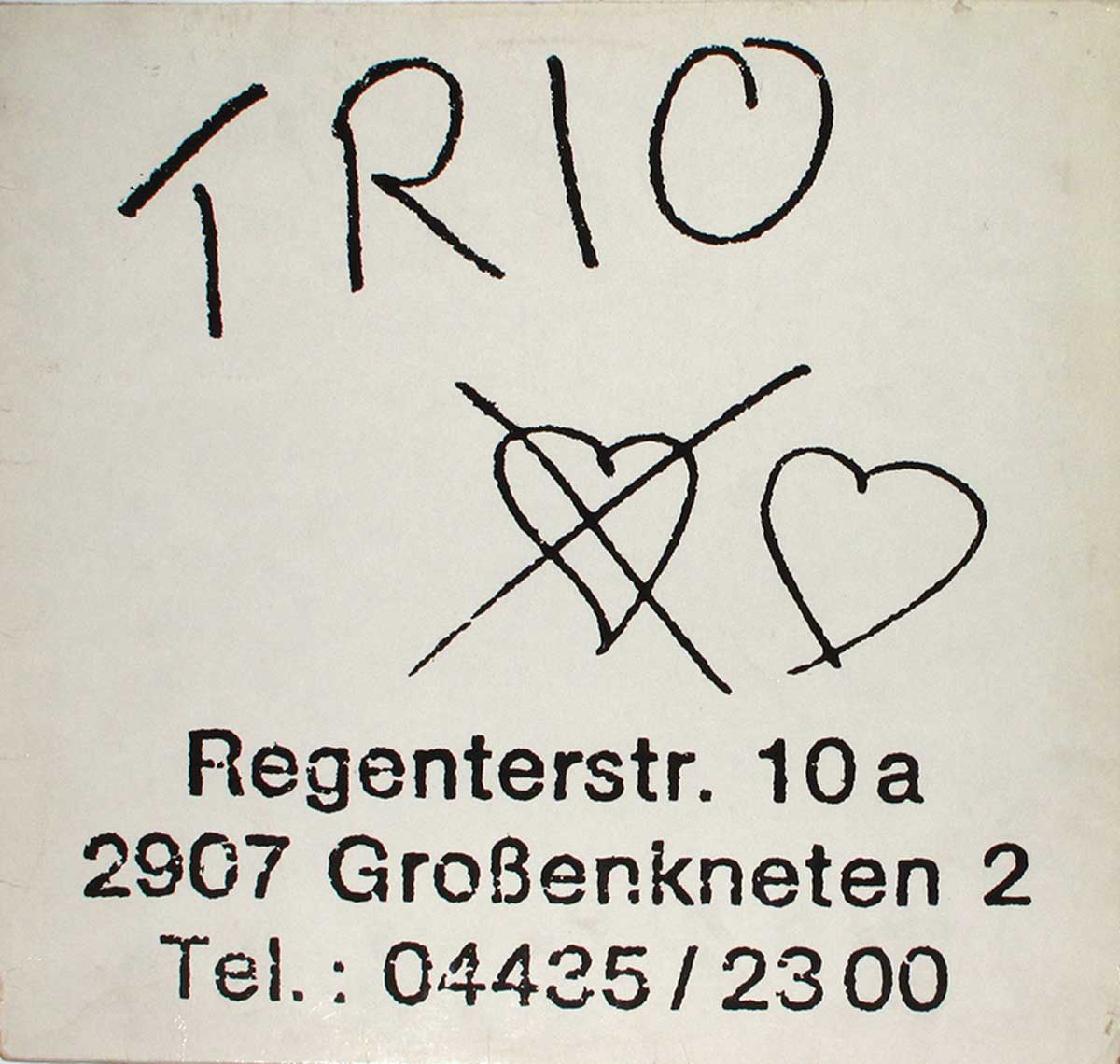In the late 1970s, music was undergoing seismic shifts. Punk rock had exploded across the globe, electronic experimentation was redefining pop, and Germany was on the verge of a movement that would leave an indelible mark on the international scene. The Neue Deutsche Welle—or NDW—was a wave of German new wave music that married punk’s raw energy with a playful, experimental aesthetic. And at the center of this movement stood Trio, a band so stripped down and ironic that they became the genre’s minimalist champions.
Formed in 1979 in the small town of Großenkneten, Trio consisted of Stephan Remmler (vocals and keyboards), Gert “Kralle” Krawinkel (guitar), and Peter Behrens (drums). From the outset, they were different. Where others sought complexity, Trio sought simplicity. Their songs were often little more than vocals, a single guitar riff, and a drum machine keeping time. Yet within that framework, they created a sound that was not just unique but infectious.
Their contribution to the NDW movement was both musical and cultural. In 1982, Trio released “Da Da Da (Ich lieb’ dich nicht du liebst mich nicht aha aha aha).” At first listen, it was absurdly simple: a looping beat, monotone vocals, and the repetitive nonsense syllables of the title. But that simplicity was its genius. It was catchy, humorous, and completely unlike anything else at the time. The song became an international hit, charting in multiple countries and cementing Trio’s place as the NDW’s breakout act.
The success of “Da Da Da” wasn’t just about the music—it was about what it represented. Trio embodied the ironic, tongue-in-cheek sensibility of the NDW. Their lyrics were often playful, poking fun at the seriousness of traditional pop and rock. Take “Da Da Da” itself—a song that turned the theme of unrequited love into a wry, almost nihilistic joke. The humor was sharp, but it was also accessible. Trio understood that music could be both art and entertainment, a balance that many of their contemporaries struggled to strike.
Visually, Trio reinforced their minimalist ethos. Their album covers, like their music, were stripped down—often plain white with simple, hand-drawn graphics. Their stage presence was equally unorthodox. Peter Behrens, with his shaved head and deadpan expression, looked more like a mime than a drummer. Yet his eccentric style became an essential part of the band’s identity, adding a quirky visual element to their performances.
What made Trio truly revolutionary, though, was how they managed to take something so inherently German—the NDW—and make it global. While most NDW bands remained popular within Germany and a few neighboring countries, Trio broke through to international audiences. Their music, though in German, transcended language. The repetitive structure and catchy melodies of songs like “Da Da Da” made them instantly memorable, even to those who didn’t understand the words. It was a perfect storm of style, humor, and timing.
Trio’s minimalist approach also resonated with the DIY ethos of the punk movement that had inspired much of the NDW. They proved that you didn’t need a massive production budget or a wall of sound to make a statement. All you needed was creativity—and maybe a healthy dose of irony. In doing so, Trio inspired a wave of musicians to embrace simplicity and focus on the core of what made music powerful: the connection with the audience.
But Trio’s success was not without its contradictions. They were, in many ways, an avant-garde act, but they achieved mainstream popularity. This balancing act—between art and commerce—was a microcosm of the NDW itself. The movement thrived on its outsider status, but as bands like Trio gained international recognition, it became harder to maintain that edge.
Even so, Trio’s impact on the NDW and pop music as a whole cannot be overstated. They took risks, challenged conventions, and brought a uniquely German movement to the world stage. In doing so, they ensured that the Neue Deutsche Welle would not just be a footnote in music history, but a defining chapter.
Trio didn’t just ride the wave of the Neue Deutsche Welle—they helped shape it. And in their stripped-down simplicity, they proved that sometimes, less truly is more.
